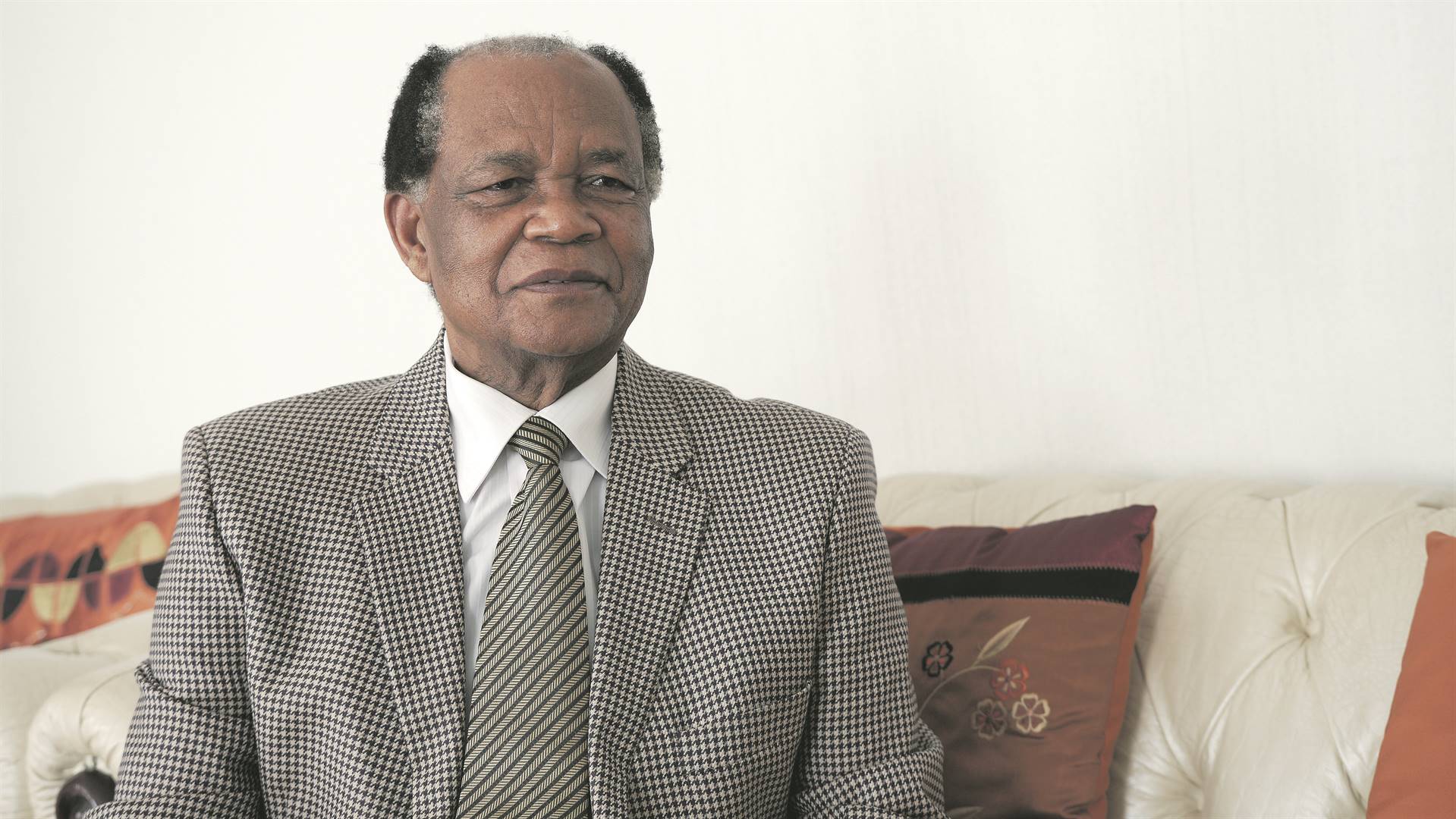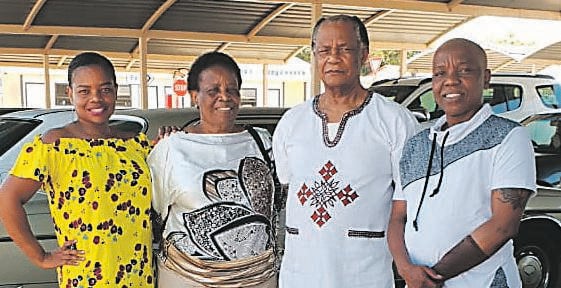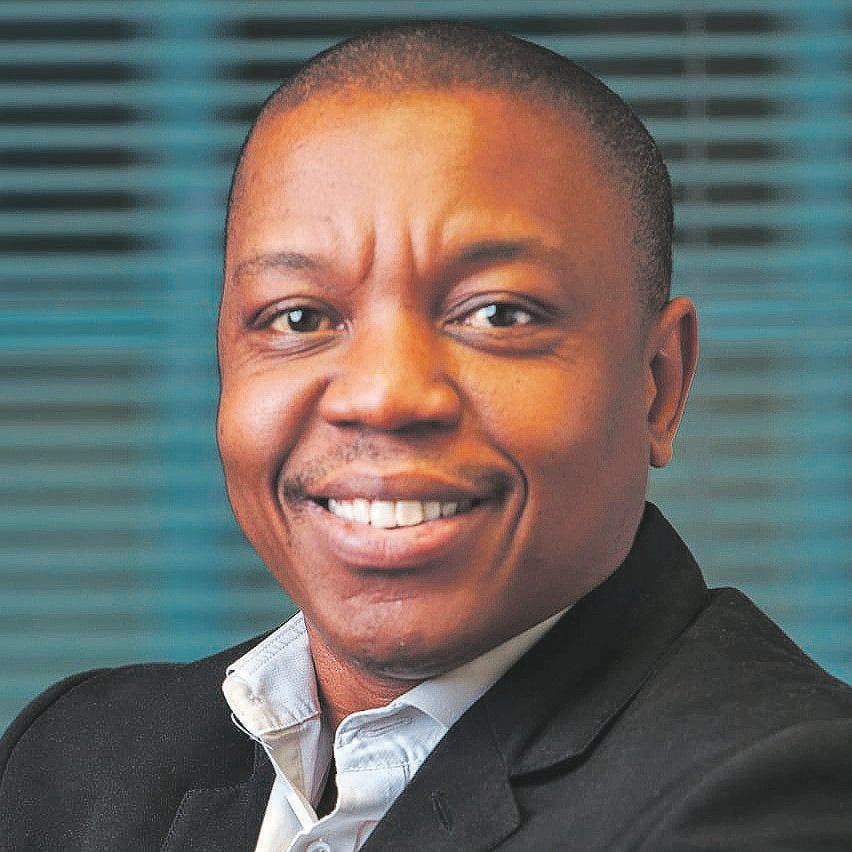
Having lost two of his beloved children to the disease, tax ombud Judge Bernard Ngoepe is advocating greater public awareness
On the lawn is a white marquee, and plastic chairs are stacked and lined up.
The feeling of a recent passing hangs in the autumn air outside Judge Bernard Ngoepe’s house in Amandasig, northwest of Pretoria.
His son, Shalele Bernard Ngoepe, died of diabetes-related complications last Saturday. Shalele was just 39 years old; he would have turned 40 in November.
Ngoepe served as Judge President of both the Johannesburg and Pretoria high courts, and was tasked with establishing the Office of the Tax Ombud in 2013.
He was the country’s first tax ombudsman and remains in office.
But he is no stranger to tragedy.
Shalele is his second child to die of diabetes-related complications. In 2012 his daughter, Kwena, also died of the disease, at the age of 41.
“Shalele was the only son I had. I had two precious girls and, like any man, I yearned for a boy. He came into this world as the third child,” Ngoepe told City Press last week.
“We were close, and, like all boys, he had his strengths and weaknesses, and episodes of being a naughty boy. But at the end of the day I couldn’t have wished for any other boy in this world.”
Ngoepe described his son’s final moments.
“We usually gather to eat as a family at 7 o’clock; this is our routine. I knew that on Saturday, Shalele and his wife and son were meant to go to a party in Soshanguve, and I had asked his sister if she had heard from him earlier that day. We didn’t think too much about it because we thought that he was at the party,” he said.
“But he had work to finish up and asked his wife and son to carry on. It was only when his wife got home at about 7 o’clock that night that she discovered him in his bed, and that he was not moving. That’s when we received the call.”
Ngoepe said it was always a worry raising Shalele and his older sister, Kwena.
Shalele was diagnosed with type 1 diabetes, or juvenile-onset diabetes, at just two years old. His sister was given the same diagnosis when she was 12.
After Shalele and Kwena were diagnosed, changes were rapidly implemented in the Ngoepe household.
“We had to ensure that we cooked healthy food for them and watched what they ate constantly. It was a pretty big deal because back then it was almost unheard of for children to be diagnosed with the disease. One expected the onset of the disease to only affect a person in their later years. But luckily for us, we managed them both as they grew,” he said.
Ngoepe’s wife, Daphne, is a medical doctor.
“I have no doubt that if his mother had not been a doctor, we would not have picked up the symptoms and Shalele would not have survived. He grew up with the most aggressive kind of diabetes, the kind where he had to be injected with insulin twice a day. It was the kind that you couldn’t just control through diet.
“Not long thereafter, his elder sister was also diagnosed. So, we grew up in that situation where we had two of our three children being diabetic.”
Shalele was an ambitious young man who had high hopes of opening his own business.
But the scourge of corruption could not escape even the son of a judge.
“I remember he said to me: ‘Dad, for me to get this tender, I would have to grease a few palms.’ I was the Judge President at the time, and with a grave conscience he said: ‘I cannot do these things, it’s just not right.’ Quite frankly, he lost out on a few things because of that,” Ngoepe said.
“He went on to work for Deloitte in the tax division and was working at a tax firm until he died. He was married with a 12-year-old son.”
The deaths of his children are not the only tragedies to have befallen the Ngoepe family.
“My granddaughter was murdered in 2006, which broke everybody’s heart. It broke my father’s heart. He died in 2007.
“The following year in 2008, I had a serious heart condition and had to undergo a triple bypass. And when I was about to come out of hospital I developed complications and was kept on a ventilator for several weeks. Mercifully, I survived that, but I was in a wheelchair and had to learn how to walk again with physiotherapy.
“Two years later, in 2010, my son-in-law died after being involved in a superbike accident.”
And two years after that, Kwena passed away.
“Then there is a pause. This is probably the longest pause we’ve had, and now my son has died,” Ngoepe said.
Ngoepe’s faith was wavering, but a call from Archbishop Emeritus Desmond Tutu helped.
“Shortly after my daughter’s death, I was in the car and was being driven. I was asking myself questions, even from the point of religion. The phone rang, and it was Archbishop Desmond Tutu.
“He knew about my challenges, even from the time of my granddaughter. So I asked the driver to stop, and one of the first things he said was: ‘Let’s pray over the phone.’
“After that I felt strengthened. I’m not sure if the family managed, and I must confess that there was a time when even my wife and I wavered a bit. But interventions such as this kept happening and we found our strength again.
“Nobody must tell you they have all the strength in the world to carry these things. I didn’t, and it is not even a thing you can wish on your worst enemy.”
Ngoepe believes people need to be more aware of the seriousness of diabetes and how to manage it.
“Diabetes has been acknowledged as one of the killer diseases which takes away the lives of so many. People don’t seem to realise how many are afflicted with diabetes. It is something that we cannot wish away and we need to recognise that it is a real problem,” he said.
“People also need to realise that it is a hereditary condition.
“In our case, the kids’ maternal grandmother was seriously diabetic, but her children – including my wife – were spared of diabetes, mercifully. It appeared in our children, unfortunately.
“You don’t mess around with diabetes.”
Despite the judge having to deal with the death of his son, he still takes pride in his work, especially as the tax ombudsman.
“I was asked to come out of retirement in 2013 and start up this office; it only existed on paper. I started with three people, and without any furniture. The office has since grown; I have continued to get committed staff and the office has grown to about 46 people. It is an office rendering a valuable service to the public,” he said.
“It is an independent office which has helped not only individuals but the SA Revenue Service as well, because we are able to ensure that there is an amicable culture within the system of tax collection.
“But I did not get the kind of cooperation that I wanted to get from the previous minister of finance. I only hope that the new finance minister will give us support, for the benefit of taxpayers.”
The Ngoepe family has urged well-wishers to donate to Diabetes SA in Shalele’s name; contact person: Brian Midlane at midlanebh@telkomsa.net




 Publications
Publications
 Partners
Partners











